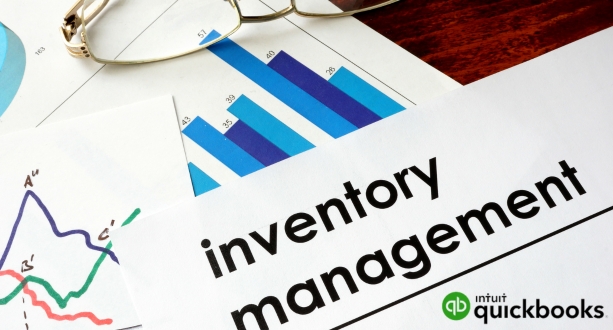Introduction to QuickBooks for Restaurants and Hospitality
The Crucial Role of Financial Management in the Restaurant Industry
Navigating the complexities of the restaurant industry requires meticulous financial management. From controlling costs to optimizing revenue streams, effective financial strategies form the backbone of a successful hospitality business. This section delves into the pivotal role financial management plays in ensuring the sustainability and profitability of restaurants.
Overview of QuickBooks as a Tailored Solution for Hospitality Businesses
QuickBooks emerges as a specialized solution designed to meet the unique needs of hospitality businesses, offering a comprehensive suite of tools tailored to the intricacies of the restaurant sector. This subsection provides an in-depth overview of how QuickBooks stands out as a versatile and efficient financial management solution for restaurants, addressing their specific requirements.
Key Challenges Addressed by QuickBooks in the Restaurant Sector
The restaurant industry comes with its set of challenges, from inventory management to compliance with complex tax regulations. QuickBooks steps in as a reliable ally, tackling these challenges head-on. This part outlines the specific pain points within the restaurant sector that QuickBooks is adept at addressing, establishing it as a vital asset for overcoming industry-specific hurdles.
Setting Up QuickBooks for Restaurants
Creating a Chart of Accounts
Establishing a robust Chart of Accounts is the foundation of effective financial management in the restaurant industry. QuickBooks empowers businesses to customize their accounts, tailoring them to menu categories, specific expenses, and diverse revenue streams. This section guides restaurants through the process of creating a Chart of Accounts that aligns seamlessly with their operational structure.
Connecting Point-of-Sale Systems
The integration of Point-of-Sale (POS) systems with QuickBooks is a game-changer for restaurants. This subsection explores the advantages of linking POS systems to QuickBooks, facilitating streamlined transactions and automating data entry. From order processing to real-time sales tracking, the synergy between QuickBooks and POS systems enhances efficiency and accuracy in financial record-keeping.
Integrating with Reservation Systems
Efficient customer management is pivotal in the hospitality industry, and QuickBooks goes beyond traditional accounting by integrating with reservation systems. This part delves into the benefits of this integration, elucidating how QuickBooks helps in the seamless management of customer bookings and table assignments. By synchronizing reservation data, restaurants can optimize table turnover and enhance the overall dining experience for patrons.
Expense Tracking and Cost Management
Categorizing and Tracking Expenses
Accurate expense tracking is fundamental for sustainable operations in the restaurant industry. QuickBooks facilitates the meticulous categorization and tracking of expenses, ensuring precision in cost allocation for key elements such as ingredients, labor, and overheads. This section outlines how QuickBooks simplifies expense management, allowing restaurants to maintain a detailed record of their financial outflows.
Managing Inventory with QuickBooks
Efficient inventory management is critical in the hospitality sector, and QuickBooks provides robust tools to streamline this process. From real-time monitoring of stock levels to automated reordering systems, this subsection details how QuickBooks enhanced inventory control. Additionally, it explores how QuickBooks facilitates a comprehensive cost-of-goods analysis, empowering restaurants to optimize their stock levels and maximize profitability.
Budgeting for Operational Efficiency
Budgeting is a strategic component of operational efficiency in restaurants, and QuickBooks serves as a dynamic tool for budget planning and monitoring. This part elucidates how QuickBooks enables businesses to create and manage budgets effectively. By utilizing the platform’s features, restaurants can align financial goals with operational activities, fostering a proactive approach to resource allocation and ensuring financial stability.
Invoicing and Revenue Management
Generating Invoices and Receipts
QuickBooks offers a robust invoicing system tailored to the needs of restaurants and hospitality businesses. You can create professional invoices for various scenarios, including:
- Catering: Generate invoices for catering orders, including detailed breakdowns of food items, beverages, service charges, and taxes.
- Events: Create invoices for event bookings, including venue rental fees, equipment rentals, catering costs, and staffing charges.
- Services: Issue invoices for services such as room service, spa treatments, or valet parking.
Key Features:
- Customization: Design custom invoice templates with your logo, branding, and preferred layout.
- Automation: Automate recurring invoices for regular clients or memberships.
- Payment Options: Accept payments online through integrated payment gateways.
- Multi-currency Support: Manage invoices in different currencies for international clients.
- Discounts and Promotions: Apply discounts and promotions directly to invoices.
- Tracking and Reporting: Track outstanding invoices and generate reports on sales and revenue by customer, service, or date.
Tracking Sales and Revenue Streams
QuickBooks helps you gain deep insights into your sales performance and revenue sources.
- Sales Breakdown: Analyze sales by item, category, server, location, or any other custom criteria.
- Revenue Streams Reporting: Identify your top-selling items, most profitable services, and busiest periods.
- Trend Analysis: Track trends in sales over time to make informed business decisions.
- Profitability Analysis: Calculate profit margins for individual items, services, or departments.
- Inventory Management: Monitor inventory levels and track cost of goods sold (COGS).
Managing Tips and Service Charges
QuickBooks allows you to accurately record and distribute tips and service charges earned by your staff.
- Tip Tracking: Integrate with Point-of-Sale (POS) systems to automatically record tips received on credit cards.
- Tip Distribution: Define tip pooling rules and distribute tips to staff based on hours worked, sales generated, or other criteria.
- Service Charge Management: Set up service charges for specific items or services and track their collection and distribution.
- Compliance: Ensure compliance with local regulations regarding tip reporting and distribution.
Additional Considerations:
- Integrations: Integrate QuickBooks with your POS system, inventory management software, and other business tools for a seamless workflow.
- Reporting Customization: Customize reports to meet your specific needs and track the metrics most relevant to your business.
- Training: Train your staff on using QuickBooks effectively for invoicing, sales tracking, and tip management.
By implementing QuickBooks’ invoicing and revenue management features, you can streamline your financial operations, gain valuable insights into your business performance, and improve your bottom line.
Employee Payroll and Compliance
Managing payroll in the restaurant and hospitality industry can be a complex and time-consuming task. QuickBooks helps alleviate this burden by offering comprehensive features for streamlining payroll processes, ensuring compliance, and empowering your employees financially.
Streamlining Payroll Processes
QuickBooks empowers you to manage payroll seamlessly with features like:
- Automated Payroll Runs: Save time and minimize errors by automating recurring payroll calculations based on predefined employee information and pay rates.
- Timekeeping Integration: Integrate your Point-of-Sale (POS) system or dedicated timekeeping software with QuickBooks to automatically import employee hours worked, eliminating manual data entry.
- Payroll Tax Calculations: QuickBooks automatically calculates and deducts federal, state, and local payroll taxes based on your location and employee information.
- Direct Deposit and Paycards: Offer employees the convenience of receiving their pay directly through bank accounts or paycards, reducing the need for manual check printing and distribution.
- Multiple Pay Rates and Overtime Management: Easily manage hourly, salaried, and commissioned employees with varying pay rates and track overtime pay accruals accurately.
Benefits:
- Increased efficiency and accuracy in payroll processing
- Reduced administrative burden and paperwork
- Improved employee satisfaction with on-time and accurate paychecks
- Reduced risk of penalties from non-compliance with tax regulations
Ensuring Payroll Tax Compliance
QuickBooks helps you stay compliant with complex tax regulations by:
- Automatic Tax Updates: The software automatically updates with the latest tax rates and forms, ensuring you always calculate and file taxes accurately.
- Tax Payment Reminders: Receive timely reminders for upcoming tax deadlines to avoid penalties and late fees.
- Electronic Tax Filing: Streamline tax filing by electronically submitting payroll tax forms directly to the relevant authorities.
- Comprehensive Tax Reports: Generate detailed reports on payroll taxes withheld, paid, and filed for easier record-keeping and audits.
- Multi-state Tax Support: Manage payroll taxes for employees working across multiple states with ease.
Benefits:
- Reduced risk of costly tax errors and penalties
- Simplifies tax filing and record-keeping processes
- Increases transparency and accountability in financial operations
Employee Financial Management Tools
QuickBooks empowers your employees with financial tools that improve their financial well-being and engagement:
- Employee Self-Service Portal: Employees can access their paystubs, tax forms, and W-2s online, reducing paper waste and administrative tasks.
- Expense Tracking: Employees can submit expense reports with receipts scanned or uploaded directly through the portal for efficient reimbursement processing.
- Payroll Deduction Options: Enable employees to set up automatic deductions for savings, retirement plans, or charitable contributions directly from their paychecks.
- Financial Education Resources: Provide employees with access to educational resources on budgeting, saving, and debt management.
Benefits:
- Increased employee satisfaction and financial literacy
- Reduced administrative burden for expense reporting and reimbursements
- Promotes responsible financial planning among employees
Additional Considerations:
- Integration with HR software: Consider integrating QuickBooks with your HR system for a more holistic view of employee data and payroll processes.
- Security and compliance: Ensure your QuickBooks setup adheres to data security best practices and relevant payroll compliance regulations.
- Regular training: Train your staff on using QuickBooks effectively for payroll tasks and employee self-service features.
By leveraging QuickBooks’ payroll and compliance features, you can simplify complex financial processes, ensure accuracy and timely execution, and empower your employees to take control of their finances. This not only reduces administrative burden and boosts financial efficiency but also enhances employee satisfaction and contributes to a more positive work environment.
Financial Reporting and Analysis
In today’s dynamic hospitality industry, understanding your financial health is crucial for making informed decisions and achieving long-term success. QuickBooks empowers you with robust reporting and analysis tools to gain valuable insights into your business performance.
Generating Comprehensive Financial Reports
QuickBooks provides a comprehensive suite of pre-built reports that offer a clear picture of your financial standing:
- Balance Sheets: Get a snapshot of your assets, liabilities, and equity at a specific point in time.
- Income Statements: Track your revenue, expenses, and net income over a defined period.
- Cash Flow Statements: Monitor your cash inflows and outflows to assess your liquidity and financial flexibility.
Benefits:
- Easy access to critical financial information
- Improved understanding of your business performance
- Identification of strengths and weaknesses
- Informed decision-making regarding investments, budgeting, and resource allocation
Beyond the basics: QuickBooks allows you to drill down further with:
- Class and Location Tracking: Analyze your financial performance by specific product categories, departments, or locations.
- Ratio Analysis: Calculate key ratios like profitability, liquidity, and solvency to assess your financial health and compare it to industry benchmarks.
- Trend Analysis: Track changes in your financial data over time to identify trends and predict future performance.
Analyzing Key Performance Indicators (KPIs)
QuickBooks helps you monitor and analyze key performance indicators (KPIs) specific to the hospitality industry:
- Revenue per Available Room (RevPAR): Measure your hotel’s room revenue efficiency.
- Cost per Occupied Room (COPR): Track the operational expenses associated with occupied rooms.
- Average Daily Rate (ADR): Monitor your room pricing performance.
- Table Turnover Rate: Assess your restaurant’s efficiency in serving customers.
- Food Cost Percentage: Track the cost of food relative to your total food sales.
Utilizing data for decision-making: By analyzing these KPIs and comparing them to industry standards or historical data, you can identify areas for improvement, optimize pricing strategies, and make informed decisions to drive profitability and guest satisfaction.
Customizing Reports for Stakeholders
QuickBooks allows you to tailor reports to the specific needs of different stakeholders:
- Investors: Generate reports showcasing your financial health, profitability, and growth potential.
- Management: Create operational reports tracking key performance indicators, budgets, and resource allocation.
- Regulatory Authorities: Generate reports compliant with relevant tax and accounting regulations.
Benefits:
- Improved communication and transparency with stakeholders
- Targeted reporting for specific needs and decision-making processes
- Enhanced credibility and professionalism
Additional Considerations:
- Data Visualization: Utilize charts and graphs to make financial data more easily digestible and actionable.
- Exporting Reports: Export reports in various formats (PDF, Excel) for further analysis or sharing.
- Custom Report Creation: Build custom reports to track specific metrics or KPIs relevant to your business.
By leveraging QuickBooks’ powerful reporting and analysis tools, you can transform your financial data into actionable insights, gain a deeper understanding of your business performance, and make informed decisions that drive your success in the competitive hospitality industry.
Integrating Third-Party Apps and Tools
The power of QuickBooks extends beyond its core capabilities when you unleash its integration potential. By connecting with a vast array of third-party apps and tools, you can customize your experience, automate tasks, and streamline operations across your restaurant or hospitality business.
Exploring QuickBooks Integrations
Imagine streamlining your workflow while gaining deeper insights into your business. You can achieve this through seamless integrations with tools covering various vital areas:
Reservations:
- OpenTable: Simplify reservation management, track guest preferences, and optimize table utilization.
- Resy: Streamline online bookings, manage waitlists, and send automated text confirmations for improved guest experience.
Marketing and CRM:
- Mailchimp: Create targeted email campaigns based on customer data for more effective marketing.
- Constant Contact: Manage email lists, track campaign performance, and nurture guest relationships.
Analytics and Reporting:
- ProfitWell: Gain deeper insights into your financial health with automated recurring revenue and customer lifetime value reports.
- Gusto: Simplify payroll and HR tasks while gaining access to valuable employee analytics.
Inventory and Procurement:
- Restaurant365: Streamline inventory management, optimize purchasing, and reduce food waste.
- Ordoro: Automate purchase orders, track deliveries, and manage vendor relationships.
Payment Processing:
- Stripe: Accept online payments securely and integrate with POS systems for seamless transactions.
- Square: Manage transactions, track sales, and generate reports with ease.
These are just a few examples; the possibilities are endless. QuickBooks boasts integrations with hundreds of third-party applications, allowing you to tailor your setup to your specific needs and industry.
Benefits of Integrations:
- Automating Tasks: Eliminate manual data entry and tedious processes, saving time and reducing errors.
- Real-time Insights: Gain access to up-to-date data across different platforms for informed decision-making.
- Enhanced Guest Experience: Offer seamless reservations, personalized marketing, and improved service.
- Increased Efficiency: Streamline operations, boost productivity, and free up time for growth initiatives.
Selecting Apps for Enhanced Efficiency
With so many options available, choosing the right integrations can be overwhelming. Consider these factors when selecting apps:
- Needs and Goals: Identify your specific pain points and areas where you need enhanced functionality.
- Compatibility: Ensure the app seamlessly integrates with your QuickBooks version and other existing tools.
- User Reviews and Ratings: Research user feedback and compare functionalities of different apps.
- Budget: Choose apps that fit your budget and offer a good return on investment.
Maximizing Operational Productivity:
Once you’ve selected your target integrations, here’s how they can work together to optimize your operations:
- Inventory Management and Automated Ordering: Integrate your inventory software with QuickBooks to track stock levels and automatically trigger purchase orders when certain thresholds are reached.
- Reservation System and Guest Data Synchronization: Seamlessly connect your reservation system with QuickBooks to update guest profiles, track booking trends, and personalize marketing campaigns.
- Point-of-Sale (POS) and Financial Data Integration: Eliminate double data entry by integrating your POS system with QuickBooks. Track sales, analyze performance metrics, and reconcile transactions effortlessly.
- Automated Reporting and Dashboards: Generate custom reports from various integrated tools and create comprehensive dashboards for a visual overview of your business performance.
By effectively leveraging third-party app integrations, you can transform your restaurant or hospitality business into a well-oiled machine. You’ll unlock increased efficiency, gain deeper insights, and focus on what matters most – delivering exceptional guest experiences and driving sustainable growth.
QuickBooks Support for Restaurants
Navigating the intricacies of managing a restaurant in today’s fast-paced world often requires reliable support. QuickBooks recognizes this and offers a comprehensive support system tailored to the specific needs of restaurant and hospitality businesses.
Accessing QuickBooks Help Center:
The first line of defense for any QuickBooks query is the readily available Help Center. This comprehensive online resource offers a wealth of information, including:
- Detailed Documentation: Step-by-step guides, tutorials, and FAQs covering virtually every aspect of using QuickBooks for restaurants.
- Video Tutorials: Visual demonstrations of common tasks and functionalities, ideal for learners who prefer a more hands-on approach.
- Troubleshooting Resources: Help diagnosing and resolving common errors or issues encountered in QuickBooks.
- Glossary of Terms: Definitions of key accounting and QuickBooks-specific terms to ensure clarity and understanding.
Benefits:
- 24/7 Accessibility: Access the Help Center anytime, anywhere, for immediate assistance.
- Self-guided Learning: Find solutions at your own pace and convenience without waiting for support calls.
- Comprehensive Coverage: Addresses a wide range of topics relevant to restaurant accounting and QuickBooks usage.
Customer Support for Restaurant-specific Inquiries:
When the Help Center isn’t enough, QuickBooks offers dedicated customer support channels to address your specific restaurant-related queries:
- Phone Support: Speak directly with a QuickBooks representative trained to handle restaurant-specific challenges and features.
- Live Chat: Connect with a support agent online for real-time assistance with questions or troubleshooting issues.
- Email Support: Send detailed inquiries and receive personalized responses from the QuickBooks support team.
Benefits:
- Expert Assistance: Receive targeted guidance from professionals familiar with the unique needs of the restaurant industry.
- Personalized Solutions: Get help tailored to your specific situation and QuickBooks configuration.
- Multiple Support Channels: Choose the method that best suits your learning style and availability.
Engaging with the QuickBooks Community:
Beyond official support, QuickBooks fosters a vibrant community of users where you can connect with other restaurant owners and managers facing similar challenges. This community offers valuable resources, including:
- Forums: Ask questions, share experiences, and learn from other QuickBooks users in the hospitality industry.
- Webinars and Events: Attend online or in-person sessions hosted by QuickBooks experts, focusing on restaurant-specific topics and best practices.
- Blog Posts and Articles: Read informative content on various aspects of using QuickBooks for restaurant accounting and operations.
Benefits:
- Peer-to-Peer Learning: Gain insights and tips from fellow restaurateurs who understand your challenges.
- Stay Informed: Keep up with the latest industry trends and best practices related to QuickBooks and restaurant management.
- Network and Build Relationships: Connect with potential collaborators or partners within the QuickBooks community.
Maximizing Support:
To get the most out of QuickBooks support, be prepared with specific details about your issue and questions, including:
- Your QuickBooks version and edition
- The nature of your business (restaurant, bar, catering, etc.)
- Specific features or functionalities you’re having trouble with
- Any relevant screenshots or error messages
By actively utilizing the diverse support resources available, you can confidently navigate any QuickBooks challenges and leverage its full potential to optimize your restaurant’s financial management and operations.
Case Studies and Success Stories
Real-life Examples of Successful Implementation
QuickBooks isn’t just a software solution; it’s a powerful tool that can empower restaurants and hospitality businesses to achieve remarkable results. Here are a few inspiring examples:
Case Study1 : Local Coffee Shop Chain Streamlines Operations:
The Challenge: A growing coffee shop chain struggled to manage multiple locations with manual spreadsheets, leading to errors and inefficient inventory control.
The Solution: Implementing QuickBooks Online streamlined their operations. Integrated POS systems provided real-time sales data, automated inventory tracking, and simplified payroll management.
The Result: Increased operational efficiency, reduced food waste and labor costs, and improved financial visibility across locations, enabling them to open new stores with confidence.
Case Study 2 : Fine Dining Restaurant Elevates Guest Experience:
The Challenge: A high-end restaurant wanted to personalize their guest experience while maintaining precise financial control.
The Solution: QuickBooks Enterprise provided advanced features like customer relationship management (CRM) and menu costing tools. They integrated a reservation system to track preferences and personalize offers.
The Result: Enhanced guest experience through targeted promotions and dietary options, improved cost management, and increased profitability, enabling them to reinvest in culinary innovations.
Case Study 3: Boutique Hotel Boosts Profitability and Guest Satisfaction:
The Challenge: A small boutique hotel faced challenges managing bookings, tracking expenses, and optimizing room rates.
The Solution: Implementing QuickBooks Hospitality Edition provided specific features for room bookings, guest packages, and automated revenue management. They integrated with a channel manager to optimize online booking platforms.
The Result: Increased booking efficiency, improved revenue management through dynamic pricing, and enhanced guest satisfaction with personalized service and seamless check-in/out processes.
Beyond the Numbers:
These case studies showcase how QuickBooks goes beyond just numbers, driving operational excellence and guest satisfaction. By leveraging its diverse features and integrations, restaurants and hospitality businesses can unlock:
- Enhanced Efficiency: Streamline operations, automate tasks, and reduce administrative burden.
- Improved Financial Control: Gain deeper insights into costs, revenue, and profitability.
- Data-driven Decision Making: Make informed decisions based on real-time data and reports.
- Personalized Guest Experiences: Deliver tailored services and build lasting relationships.
- Sustainable Growth: Optimize operations, manage costs, and expand with confidence.
Inspire and Empower:
These success stories serve as a testament to the transformative power of QuickBooks in the restaurant and hospitality industry. By learning from these examples and exploring the vast potential of QuickBooks, you can unlock similar success and propel your business to new heights.
Conclusion: Transforming Restaurant Financial Management with QuickBooks
In conclusion, QuickBooks emerges as a transformative force in restaurant financial management, addressing the unique challenges faced by the hospitality sector. By offering tailored solutions from expense tracking to revenue management, QuickBooks empowers restaurants to navigate complexities with precision and efficiency. The platform’s ability to seamlessly integrate with various systems, including POS and reservation tools, streamlines operations, enhances accuracy, and elevates overall financial performance.
Through robust features like inventory management, budgeting tools, and detailed financial analysis, QuickBooks provides restaurateurs with the insights needed for strategic decision-making. The platform’s invoicing capabilities and meticulous tracking of sales and revenue streams contribute to a comprehensive and clear financial picture.
Moreover, QuickBooks ensures compliance with industry-specific requirements, such as tips and service charges distribution, fostering financial transparency and regulatory adherence. In essence, QuickBooks stands as a vital ally for restaurants, catalyzing a transformation in financial practices, promoting efficiency, and enabling businesses to thrive in a competitive and dynamic hospitality landscape. Embracing QuickBooks signifies not just a shift in accounting methods but a strategic investment in the financial success and longevity of restaurants.









